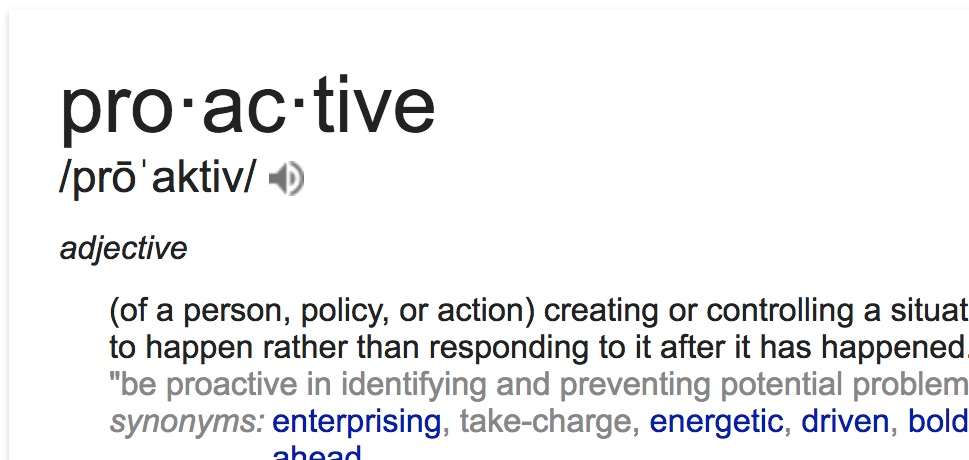In a forthright post each month, Robin dispels some truth that you otherwise might not realise with his regular Unconventional blog. In the latest instalment, Robin explains how many testers misunderstand what Proactive testing is and addresses these misconceptions.
——————————————————————————————————
People often wonder what my risk-based Proactive Testing™ methodology is, how it differs from conventional (reactive) testing, and why it can greatly enhance test effectiveness, efficiency, and acceptance. Most folks don’t know about it at all, whereas some others misconceive the term.
Proactive Testing™ incorporates familiar proven testing concepts and techniques, as well as additional less-well-known but more powerful methods, within unconventional models and approaches that can overcome many typical traditional testing weaknesses. This article discusses what it’s not. The next article describes what it is.
Why You May not Know about Proactive Testing™
You’d be unlikely to know about Proactive Testing™ unless you’ve worked with me, read my writings on it, or attended my related presentations and training seminar classes. You may ask, “If Proactive Testing™ is so great, why wouldn’t I learn about it in conventional testing literature or classes?”
You don’t hear about Proactive Testing™ from others because few testing authors and instructors know about it. Part of that is my fault for not being better at spreading the word. I’m working on that. Another big part is the probably-unconscious tendency to limit one’s learning to conventional sources that provide lots of good testing information but still are unaware of Proactive Testing™, which becomes self-perpetuating.
Some sources may have heard of it but don’t understand it, either because they haven’t made the effort or because they have impediments to comprehending ideas that differ from ones in which they are personally invested (see Unconventional Wisdom V6: Gurus Often Least Likely To Understand Good Ideas https://huddle.eurostarsoftwaretesting.com/unconventional-wisdom-v6-gurus-often-least-likely-understand-good-ideas/). And, it’s possible some testing authors and trainers may keep silent about anything they consider competition, especially if it may well produce better results than whatever they’re selling.
Proactive Testing™ vs. ‘proactive testing’
Without intending to refer to my Proactive Testing™ methodology, some authors and speakers do pair the terms ‘proactive’ and ‘testing.’ Perhaps the most common meanings given to such generic ‘proactive testing’ involve buddying up with developers, digging extra hard to find bugs, and/or telling everyone quite firmly how important testing is.

I certainly do encourage improving relations with developers, and also with users, managers, auditors, operations and support folks. Getting to know each other better, such as by “taking a developer to lunch,” can’t hurt and may in fact help communications and mutual understanding. Those are beneficial to any methodology, but they’re not a methodology and definitely not what I call Proactive Testing™.
One article I read described ‘proactive testing’ as being extra diligent and digging hard to find more bugs. While diligence and digging indeed are important, most testers I encounter feel they already are diligent and dig extra hard to find bugs. Attentiveness aids but is not a methodology.
Similarly, practically every testing author and instructor (including me) recognizes the importance of promoting quality to others. While everyone claims to care about quality, clearly their actions often indicate differently. Giving the benefit of the doubt, it’s likely many folks don’t accord quality its due because they may take a lot for granted and probably don’t understand all the ins and outs of assuring quality is produced.
Surely, a quality professional’s role includes helping others comprehend the true current quality conditions and what is needed to achieve desired quality levels, including and especially testing. Again, this is valuable but is not a methodology. Moreover, too often such proselytizing backfires by becoming too preachy and generally annoying.
Explicit, Erroneous References
Occasionally someone does refer specifically to my Proactive Testing™ but in a mistaken manner. My sense is that usually they base their perceptions on a superficial look at the slides in one of my presentations. I don’t just read my slides. Rather, my slides guide what I discuss in my presentation; and you can’t possibly know what I say from only looking at the slides.
If you look only at the slides and don’t know what I actually say about them, you’re likely to assume I’ll say whatever you would say about such slides. Thus, it’s common for such people to assume Proactive Testing™ is merely a new name for the same old ways of testing we’ve always used and espoused. They are wrong, somewhat benignly.
A more insidious instance occurred at a testing conference where I was speaking. For no apparent reason, the exceedingly prominent keynote speaker went off topic in Donald Trump fashion (see https://huddle.eurostarsoftwaretesting.com/unconventional-wisdom-v4-testings-donald-trumps/) to attack Proactive Testing™, which he erroneously described as dictating large volumes of paperwork and complying with many inflexible formal rules and procedures.
I’ve known this testing guru for many years and also know that he has never attended any of my talks or seminars on Proactive Testing™, which of course is why he totally misrepresented what I do say. To make it worse, it took six emails and responses before he even begrudgingly acknowledged the possibility that he was attributing to me things that I do not say and in fact are essentially opposite of what Proactive Testing™ actually is about. For a big name, he’s a very small person.
Read Part 2 on Proactive Testing here
“It isn’t what we don’t know that gives us trouble, it’s what we know that ain’t so.”
– Will Rogers
About The Blog Series
The Unconventional Wisdom blog challenges conventional wisdom. Much of conventional wisdom is valid and usefully time-saving. However, too much instead is mistaken and misleadingly blindly accepted as truth, what I call “conventional we’s dumb”. Each month, I’ll share some alternative possibly unconventional ideas and perspectives I hope you’ll find wise and helpful.
